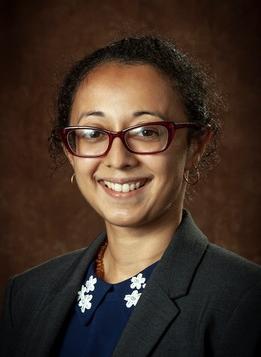最近的研究
康吉鳗,年代.Murimi R. & 布兰科,年代. (2024). An Exploration of Factors Influencing Work 从 首页 During Covid-19. Information Systems Management 41 (3), 319-338. 检索 从 http://doi.org/10.1080/10580530.2024.2309586
Murimi R. 贝尔克.拉希德,A.A. & Beldona,年代. (2023). Blockchains: A review and re搜索 agenda for international business. Re搜索 in International Business and 财经66,102018. 从检索 http://doi.org/10.1016/j.ribaf.2023.102018
姚,W.迪克,F.P.Murimi R. & 王,G. (2023). Sok: A taxonomy for critical analysis of consensus mechanisms in consortium blockchain. IEEE访问. 从检索 http://ieeexplore.ieee.org/abstract/document/10192902
关于
Renita Murimi博士DCISSP, joined the Gupta College of Business as Associate Professor 网络安全的. Renita received a PhD and MS in Electrical Engineering 从 New Jersey Institute of Technology, and a Bachelors of Engineering (with Distinction) in Electronics and Communications 从 Manipal University, India. Her re搜索 interests are in the areas of computational social 科学, cybersecurity, blockchain and network 科学.
Why did you become a professor?
To me, academia is a uniquely rewarding vocation. It affords me the opportunity to
keep learning, to be in the company of eager, curious minds and to share what I know
与他人. I have been blessed tremendously with good teachers at every stage of
my academic journey, starting with my parents and through grade school, college and
研究生院. I consider it a distinct privilege to be able to serve as a teacher and
mentor to my students, to be able to share what I know while also continually learning
从 them and learning about advances in my academic disciplines of interest.
What do you enjoy most about teaching?
Teaching, to me, is the final step in a rigorous examination of a discipline. 教,
we need to first know and then communicate what we know in a way that would lift a
beginner up 从 the desert of “not knowing”. All of us have experienced the beginner’s
quandaries of “where do I start?”, “how should I proceed?” and I know how immensely
helpful it was to have a teacher, to have a book, to have someone who had gone ahead
我在旅途中的照片. In my experience, I have also found that the mode of delivery
is important and pedagogy is that tool that helps us refine the delivery of knowledge.
That is what I enjoy most about teaching- the cultivation and nurturing of those Eureka
moments for students as well as for myself.
What do you hope students gain 从 your courses?
I hope students learn the importance of lifelong learning and to appreciate the importance
of cross-disciplinary learning. It is important to acquire diverse perspectives while
in the pursuit of learning. Cybersecurity is a great example of the importance of
cross-disciplinary learning objectives. It is not only important to know the tools
for hacking, software programming and hardware organization; it is also important
to focus on behavioral economics, social 科学 and ethics to inform our approaches
to keep our systems, networks and data safe.
What did you do prior to entering academia?
I have always been in academia. Early on in my career, I realized the importance of
a consortium of partnerships between industry, academia and government for a holistic
approach to higher education. As such, I am always on the lookout for collaboration
opportunities so that, we in academia, can bridge the gap between industry needs and
students’ preparation for their careers.
What are you passionate about outside of the University?
I enjoy spending time with my family, reading, gardening and calligraphy. 我的丈夫,
Robert and I have three young children who occupy most of our time. Watching our children
grow and seeing them discover the wonders of life is pretty fascinating to us.
What are your re搜索 interests?
My re搜索 interests are in the field of computational social 科学, cybersecurity,
blockchain and network 科学. I am interested in studying how we inhabit our digital
networks, and how we can design these networks to live well. 古代对
eudaimonia – of how to live well- is just as relevant today, albeit in a different
context of virtual communities and pervasive smart devices. I am interested in what
eudaimonia means for our modern technological society, and I use tools 从 game theory,
probability, topology and big data to study eudaimonia in the 21st 世纪.
